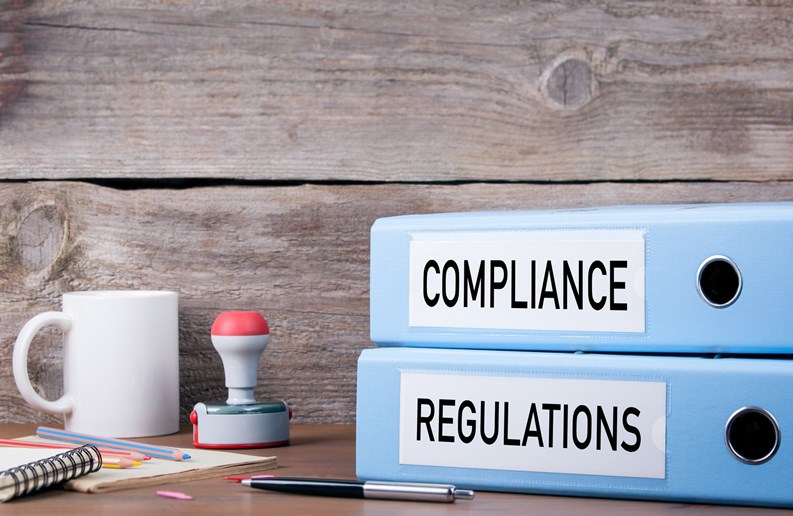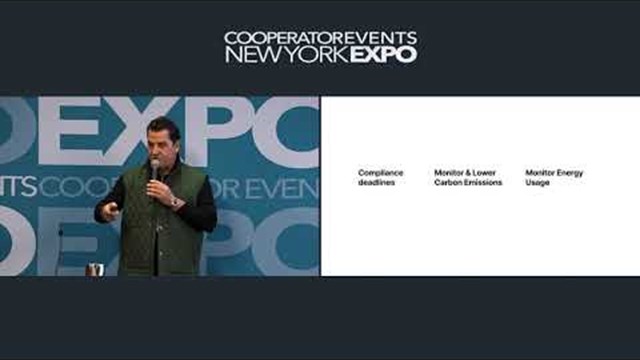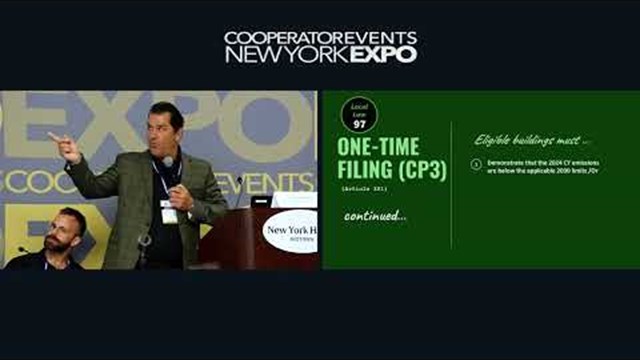When it comes to movies or television shows, especially those of the criminal, mystery, or intrigue variety, the rule of thumb is never leave a paper trail. Unfortunately, when it comes to compliance management for your building, the exact opposite is true. Paper trails are not only key for saving you money, time, and hassle—they’re often mandatory.
While images of co-op board meetings, also made popular by several shows, evoke large debates about paint colors, budget discussions, or the annoying tenant in Apartment 1B, they don’t often evoke images of the sheer amount of paperwork that is required to be compliant. And I do mean PAPERWORK.
While the City has always liked forms, forms, and more forms, in 2020, they shifted from requiring these forms to be submitted to mandating that property owners or managers retain them and make them available to the City upon request. While this made things easier for the City, it placed the burden and onus on the property owners, or more accurately, the managing agents. Piles of dusty binders have almost become synonymous with property managers and their firms. But trust us, those binders are worth their weight in gold.
This shift in City policy means it’s no longer enough to do the work or submit proof to the City once it is done; you must keep the proof. As regulations continue to tighten, maintaining organized, easily retrievable files isn’t just good practice; it’s your best defense in audits or enforcement actions.
As of today, the City requires you to record, catalogue, and hold on to numerous forms and proof of compliance, to be produced at a moment’s notice. Okay, maybe not at a moment’s notice, but if it is required of you and you haven’t been saving these records with an organized system in place, you’re in for a boatload of work and headaches.
While even the IRS only requires you to hold on to documentation for seven years, as you can see below, you are required to keep some of the records listed for 10 years. Lack of records will never make the headlines or be the topic of one of those TV dramas, but not having these records readily available for an audit or inspection can translate to steep fines, legal liability, or worse.
Below is a list of records required, how long you must retain them, and some pro tips on how to make this process as easy and efficient as possible.
XRF Lead Testing (LL31, 2020)
Retain: 10 years
Tip: Save test results by apartment and common area. Label files clearly (e.g., 2020_Apt3C_XRFResults.pdf).
Lead Work & Dust Wipe Clearances
Retain: 10 years
Tip: Keep contractor’s certification + clearance report together in one PDF.
Apartment Turnover Inspections
Retain: 10 years
Tip: Create a turnover checklist (inspection, remediation, clearance, disclosure). Save all as one package.
Tenant Lead Paint Disclosures / Annual Notices
Retain: 10 years
Tip: Proof of delivery matters—keep certified mail receipts, signed acknowledgments, or digital distribution logs.
Bedbug Annual Reports (LL69, 2017)
Retain: At least 1 year (best practice: longer for audit continuity).
Tip: Save both the disclosure form and proof of resident distribution.
Rent Stabilization Lease Riders
Retain: For entire tenancy + at least 6 years after.
Tip: Keep riders bundled with leases in digital form.
Annual Safety Notices (Window Guards, Smoke Detectors, etc.)
Retain: Best practice 10 years (falls under general annual disclosure recordkeeping).
Tip: Save both the distribution and responses.
Parapet Inspections (LL126, 2023)
Retain: 6 years
Tip: Store with façade reports; auditors often review them together.
A Pair of Cautionary Tales
And, if you think it’s not such a big deal if you don’t have those records available, Nate Weinberg, our Director of Lead Investigation, cautions you to think again. He recently helped a client who came to him after they received a violation after “doing everything right during a turnover.” Or at least they thought they did; they inspected for lead, had work performed by an EPA-certified contractor, and even cleaned thoroughly. However, they failed to properly hold onto the final dust wipe clearance report and couldn’t provide it when the HPD requested it. The end result? It was as if the work never happened, and they received the violation even after all their hard work.
But that was nothing compared to the case Jaffa’s Director of HPD Field Operations, David Mattel, encountered this past year. This client kept the bedbug infestation history forms for all their buildings in manila folders. Admittedly, not the best place for them. But disaster struck when several of those folders disappeared during a management transition. HPD audited those buildings, and the client couldn’t prove compliance. The end result? Thousands of dollars in fines, plus a red mark on their record. As our CEO Jack Jaffa explains, “In New York City compliance, if you don’t have the paperwork, it’s as if the work never happened. Our job is to make sure boards aren’t just doing the right thing, but that they’re also protecting themselves with the proof that shows it.”
A Bit of a Break
Thankfully, the 2020s brought another shift in how property managers do business, which has made this task somewhat easier to handle. Trading in physical files and file cabinets for digital record-keeping has allowed property managers to retain files without having to rent out an additional space just to hold them. But even with this shift from paper to bytes, having a system in place is crucial for being able to retrieve and submit these records efficiently and accurately when required.
Since these incidents, both of the clients mentioned above have wisely switched over to a digital system for keeping these records. While digital recordkeeping has changed the landscape of compliance management, it doesn’t come without its own perils. Many of our clients have called our team in panic when they were facing an audit, and despite extensive file searches, couldn’t locate a digital file.
Our recommendation to them and you: CAST your dice. No, we’re not recommending gambling on your compliance. Trust us, we’d never recommend that—but instead use the CAST method to ensure a strong recordkeeping system. And while we recommend digital storage over physical paper any day of the week, don’t worry if you’re still old school; using the CAST method will help you with your physical files as well.
C - Centralize your Storage: Create one central repository for all compliance records. Having files in multiple locations can make it difficult to collect all the files necessary when audited. Cloud-based platforms, if used properly, can simplify access and reduce loss.
A - Assign Responsibility: Boards should ensure their management contract specifies who is responsible for collecting, cataloguing, and maintaining each category of record.
S - Standardize Naming: Have a system in place and name all files with conformity. Plus, make sure the file names mean something to you and your team. A file called “HPD Form.pdf” tells you nothing five years later. A better label: “2024_Apt12A_TurnoverInspection_Clearance.pdf.”
T - Train your Team: When it comes to forms, there are many players involved. Superintendents, porters, and even doormen often play roles in compliance (for example, distributing notices). Training them to document correctly is essential.
Looking for some other insider pro-tips? Our team recommends you take a swing at the BAT. (You’ve got to guess we don’t mean baseball by this point.)
B - Back it Up Twice: Use the cloud + an external hard drive. Never trust only one system.
A - Audit Your Own Records: Each year, pick a category and test if files are retrievable. We recommend reviewing your records to confirm they’re complete and accessible at least once or twice a year.
T - Think Continuity: Board members, managers, and supers change. Yes, even you are replaceable, but truly well-organized records outlast people and ensure compliance regardless of what personnel changes are made.
So, while good recordkeeping may not be exciting and is not likely to make any movie anytime soon, it is one of the most cost-effective risk management strategies a board can adopt. As Jack Jaffa strongly advises, co-ops need to remember, “Boards don’t need to be perfect. They need to be prepared. A well-kept file can save a building from tens of thousands in fines, and just as importantly, it gives boards the peace of mind that they’re ready for whatever the City throws their way.” And after all, isn’t peace of mind the true Hollywood ending we all are looking for?
Michael Jaffa is COO of Jack Jaffa & Associates, a real estate consulting firm based in Brooklyn. Jackjaffa.com










Leave a Comment